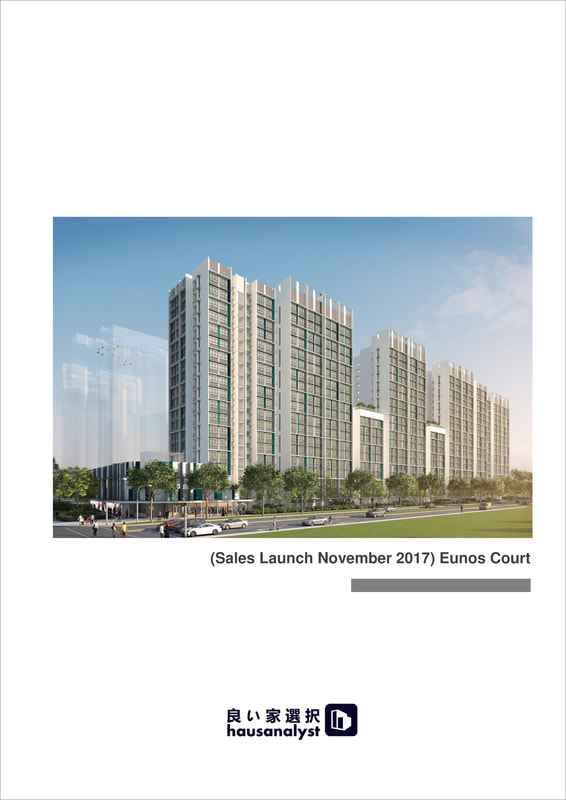|
DISCLAIMER: 1. Readers are advised to use information available here as study guide and use it at your own risk. 2. Please note that changes/ update based on updated information will be made from time to time, readers are advised to check on this page regularly. 3. Analysis was done based on available data at the time of this review being published. We have organised the rating for each attribute bellow into a scale of 1 to 4 (1 being not so desirable to 4 which is most desirable). Our scoring system is based on data collected from all BTO launches and SERS program since year 2010 which consist of more than 250 developments with more than 200,000 units in total (on average, HDB only launch 16,000 to 20,000 units per year).
The best way to reduce heat intake has always been trying to avoid it in the first place. The understanding of heat intake varies from region due to geographical location. In Singapore, we try to avoid heat intake from the west sun (afternoon sun) at all cost due to Singapore being located along the equator, which mean closer to the sun than other part of the world. Being a tropical climatic country also means that we don’t have 4 seasons and we don’t need the extra warmth from the sun! Sun radiation carries along UV (ultraviolet) and IR (Infrared) wave which is detrimental to the building enclosure as well as the interior spaces and heat up the building a lot faster than the air-con can cool it down. The higher the unit is, the hotter it will be as hot air rises not just due to higher surface temperature, it’s also due to increase usage of air-con and the hot air emitted from the condenser unit (a.k.a. outdoor unit) will move upward. Thus, affecting the higher units as the building rises and almost all units using air-con. So, the dilemma is always about finding a balance between nice view offered by higher floor and increase heat intake due to the surrounding circumstances. Architectural elements introduce on the building façade may or may not help in reducing the heat intake. Thus, analysis need to be done to ascertain the usefulness of these elements. Champions Green is located within the North Region under URA Planning area. This development is an extension to the urban transformation of Woodlands. Based on our early assessment, there will be estimated 55% of available stacks having 3pm west sun exposure (note that this assessment is based on units having a standard horizontal shading device of at least 300mm to 600mm). We rate the west sun exposure for this development at 1 out of 4.
We have been collecting wind data released by Singapore Meteorological Service from 2014 to 2017 which shown the prevailing wind direction as recorded as its Changi Airport Station. Reason for taking Changi Airport Station as reference is due to the fact that this area is more spacious, not cluttered like the city area with buildings which may deflect prevailing wind and thus recorded a non-consistence air movement which may not help in analysing future development (a.k.a off-plan development). Based on the data collected, we find a consistency in terms of the most frequent direction of prevailing wind as well as the major wind direction which happen almost 1 in 5 during the prevailing season. 3 other prevailing wind directions only happen 1 in 10 during the prevailing season. We will explain this information in detail and specific to all paid home owners who engaged us. Knowing which are these wind directions and when does it happen will greatly help when selecting a unit. Based on recorded prevailing wind data from 2014-2017 which we have consolidated, we estimate up to 23% of the available stacks here should get the most common prevailing wind exposure which happen 1 in 5 during the prevailing season. We define the wind exposure as the wind hitting diagonally on the surface of the external wall of the unit, usually on the façade with the most numbers of windows. While wind maybe much welcome during a hot day, we may not like it during heavy rain as it will help to intensify the rain hitting directly at the window and some rare case cause seepage due to poor workmanship on window frame. We rate the wind exposure for this development at 1 out of 4. We (www.hausanalyst.com) will create a specific development group chat via 'Telegram' for future home owners who engaged us and when it reaches 5 pax, all future home owners from the same development who engaged us will enjoy a group discount of up to 20% each from either our 'Most Popular' package of S$350 or S$500 'Absolute' package.
Overall, we rate this development at 11 out of total 20. Like and Share this post by clicking on the 'Like' button bellow to follow this post as we will be updating this article from time to time Copyright © 2019 by chua.soon.c[email protected]
All rights reserved. Without limiting the rights under copyright reserved above, no part of this publication may be reproduced, stored in or introduced into a retrieval system, or transmitted, in any form or by any means (electronic, mechanical, photocopying, recording or otherwise), without the prior written permission of the copyright owner of this publication.
0 Comments
Leave a Reply. |
AuthorAn architect with 2 bachelor degrees. 15 years of industry related experience in Singapore, China and Malaysia. Designed for more than 10,000 units of completed residential property in Singapore, China and Malaysia including landed and non-landed alike. Designed for residential, healthcare, industrial and transportation oriented development (Finalist at World Architectural Festival 2014, Master planning; Won Singapore Institute of Planners Best Urban Design Project 2013). Completed projects including 1,010 units Punggol Topaz, Singapore, 2,290 units of landed and high-rise residential development in Xian, China, 4,236 units of high-rise residential development in Shenyang, China, 3,595 units of high-rise residential development in Chengdu, China and many more. Archives
November 2022
Categories
All
|









 RSS Feed
RSS Feed